Why is Mold Growing in My Home?
Molds come in many colors; both white and black molds are shown here. During our Westchester home inspections it is not uncommon for us to run across some mold.
Molds are part of the natural environment. Outdoors, molds play a part in nature by breaking down dead organic matter such as fallen leaves and dead trees, but indoors, mold growth should be avoided. Molds reproduce by means of tiny spores; the spores are invisible to the naked eye and float through outdoor and indoor air. Mold may begin growing indoors when mold spores land on surfaces that are wet. There are many types of mold, and none of them will grow without water or moisture.
Mold and Health
Molds are usually not a problem indoors, unless mold spores land on a wet or damp spot and begin growing. Molds have the potential to cause health problems. Molds produce allergens (substances that can cause allergic reactions), irritants, and in some cases, potentially toxic substances (mycotoxins). Allergic reactions to mold are common. They can be immediate or delayed. In addition, mold exposure can irritate the eyes, skin, nose, throat, and lungs of both mold-allergic and non-allergic people. Some people are sensitive to molds. For these people, exposure to molds can cause symptoms such as nasal stuffiness, eye irritation, wheezing, or skin irritation. Some people, such as those with serious allergies to molds, may have more severe reactions. Severe reactions may include fever and shortness of breath. Some people with chronic lung illnesses, such as obstructive lung disease, may develop mold infections in their lungs. Molds can trigger asthma episodes in sensitive individuals with asthma. People with asthma or other respiratory ailments should avoid contact with or exposure to molds.
How do I Get My Home Tested for Mold?
Mold inspecting and testing starts with a General Visual Mold Inspection of the home and most often concludes with air-sampling and/or swab sampling. The samples are sent to an accredited lab where the samples are analyzed and a report is generated by a Registered Clinical Laboratory Technician. Should elevated conditions exist; a corrective remediation plan of action can then be drawn up. New York State requires anyone engaged in the mold testing business to be state licensed. For additional information visit my mold testing information page for additional information on mold and mold testing.

